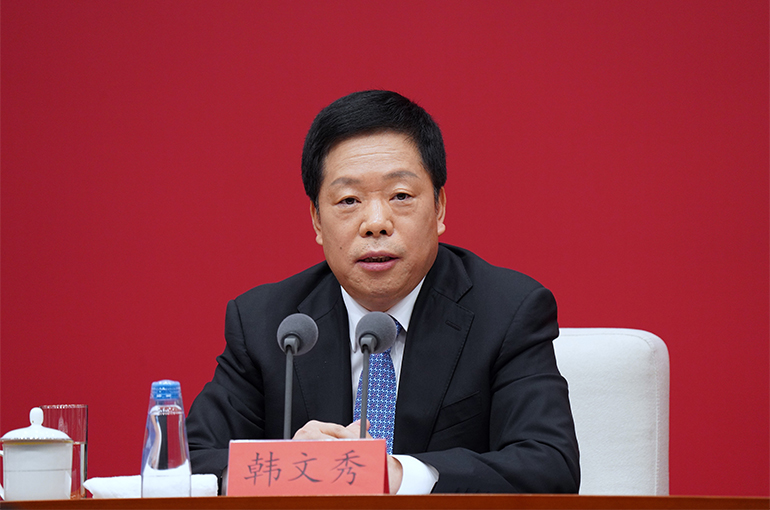 CPC Central Committee Stresses Weight of Reforming State Capital, SOEs at Third Plenary Session
CPC Central Committee Stresses Weight of Reforming State Capital, SOEs at Third Plenary Session(Yicai) July 22 -- The 20th Central Committee of the Communist Party of China stressed the importance of furthering the reform of state-owned assets and enterprises, especially those in natural monopoly businesses such as energy and railway, in the resolution it adopted at its third plenary session.
“We will deepen reform of state capital and state-owned enterprises, improving the institutions and mechanisms for management and oversight, strengthening strategic coordination between relevant administrative departments, and working to refine the layout of the state-owned sector and adjust its structure,” according to the resolution published yesterday. “All this will help state capital and SOEs get stronger, do better, and grow bigger, with their core functions and core competitiveness enhanced.
“The institutional framework under which SOEs pursue original innovation will be improved, and the reform of state capital investment and operation companies will be continued,” the resolution noted. “We will establish a system to assess SOEs’ performance in fulfilling their strategic missions, refine the category-based SOE evaluation system, and introduce value-added accounting in the state-owned sector.
“While promoting independent operation of natural monopoly businesses in sectors such as energy, railway, telecommunications, water conservancy, and public utilities, we will advance market-oriented reforms in the competitive areas of these sectors and improve regulatory institutions and mechanisms,” the resolution pointed out.
The reform for natural monopoly businesses will focus on two main points, according to Liu Xingguo, senior special researcher at the China Enterprise Confederation. The first is the separation of areas suitable for monopoly and those for competition, which can be seen as a prerequisite for the reform, and the second is making the competitive areas market-oriented.
The reform should maintain the natural monopoly in the intermediate pipeline and transportation networks to prevent prolonged construction periods and disorderly management, said Wu Gangliang, researcher at the China Enterprise Reform and Development Society. Meanwhile, it should bring in a market-oriented competition mechanism for service-oriented businesses and make them accessible to private enterprises, he added.
Taking the railway industry as an example, railway infrastructure has the characteristics of public welfare and monopoly, while railway transportation is a commercial, competitive, and service-oriented business, said Zuo Dajie, associate professor at the School of Transportation and Logistics of Southwest Jiaotong University.
Therefore, China should maintain control over railway infrastructure and consider railway transport services a competitive area, thus opening them to private enterprises to promote diversified and moderate competition among business players, Zuo noted.
Full text of the resolution of the CPC Central Committee on further deepening reform comprehensively to advance Chinese modernization: https://english.news.cn/20240721/342df6c6e05c4e1a9ce4f6e3b933007b/c.html
Editor: Futura Costaglione